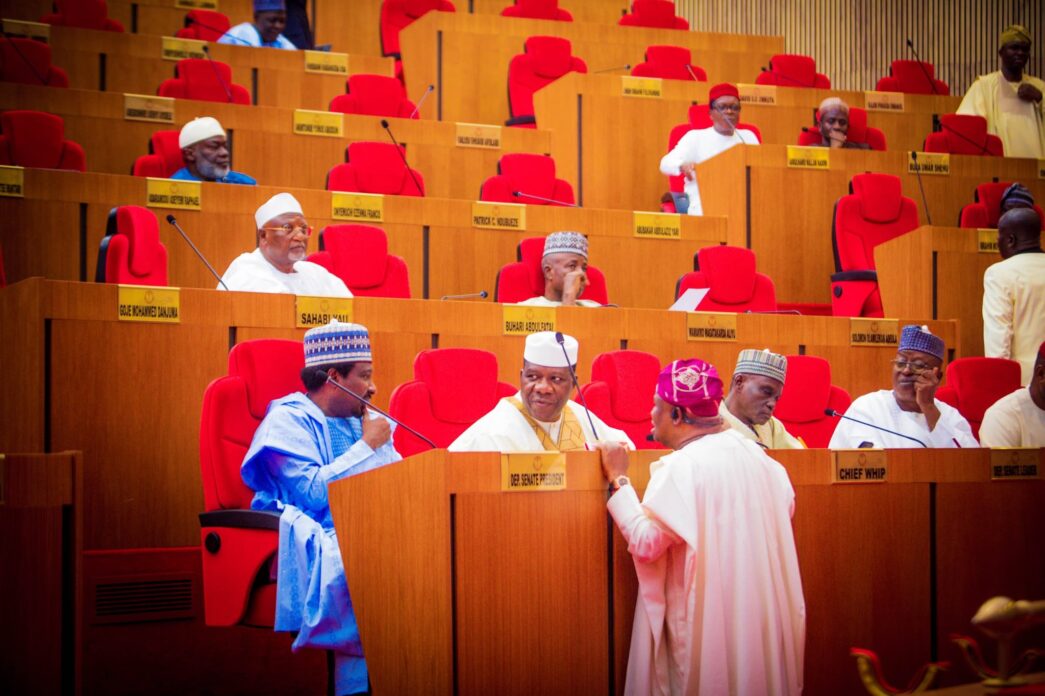The senate has passed for second reading a bill seeking to repeal the Ministry of Finance Incorporated (MOFI) Act of 1959 and re-enact the Ministry of Finance Incorporated Act 2025.
The bill was taken after the presentation of its general principles at plenary on Wednesday.
The proposed legislation, sponsored by Sani Musa, senator representing Niger east, aims to create a modern, transparent, and professionally driven framework for MOFI.
Musa, in his lead debate, said the bill sought to replace the existing 65-year-old law with a more robust framework aligned with Nigeria’s economic realities and global best practices.
Advertisement
He said MOFI was established in 1959 as the federal government’s investment holding company but had since operated largely as a passive custodian of national assets.
Musa noted that the current act left MOFI without the authority, governance structure, or institutional capacity required to manage public investments effectively.
“The result is that the federation has continued to lose significant revenue due to ownership structures and weak oversight mechanisms,” he said.
Advertisement
The lawmaker said the bill would transform MOFI from a “dormant custodian” into an active, strategic, and transparent institution capable of driving national wealth creation.
Musa, who chairs the senate committee on finance, said the legislation would establish a professional board with clear oversight responsibilities, backed by annual external audits and transparent reporting requirements.
He said the bill would empower MOFI to actively manage federal assets, invest in domestic and international markets, enter public-private partnerships, and deploy innovative financial instruments, including securitisation, bond issuance, and special-purpose vehicles.
Misa noted that the bill was designed to channel investments into high-impact sectors such as technology, agriculture, manufacturing, infrastructure, and other growth-focused areas.
Advertisement
He said this would reduce dependence on oil revenues and open new economic opportunities, adding that the weaknesses in the current law had limited Nigeria’s ability to generate value from public assets.
“In Singapore, Singapore’s Temasek Holdings, valued at more than $382 billion, operates with an independent board, full public disclosures, and diversified investment portfolios,” he said.
“In Norway, the Sovereign Wealth Fund manages more than $1.4 trillion and is renowned for transparency, ethical guidelines, and rigorous parliamentary oversight.”
The legislator said the bill drew from such global models in governance, transparency, and performance.
Advertisement
He urged his colleagues to support the reform, saying it would help Nigeria transition from a volatile, revenue-dependent economy to a diversified, asset-driven one.
Abdulahi Yahaya, senator representing Kebbi north, said the bill was important and suggested merging the MOFI Act with the Sovereign Wealth Fund Act to create a unified framework for managing federal investments and assets.
Advertisement
Adetukunbo Abiru, senator representing Lagos east, said the bill was long overdue and urged MOFI to establish a comprehensive database of all federal investments within and outside Nigeria.
Abdul Ningi, senator representing Bauchi central, said the proposed legislation was landmark, noting that the existing act had not been modified for 65 years.
Advertisement
He described the move to repeal and re-enact the law as timely and necessary.
Senate President Godswill Akpabio referred the bill to the senate committee on finance after it passed second reading.
Advertisement







